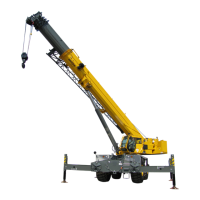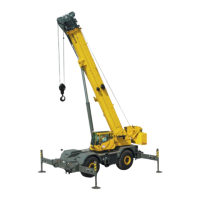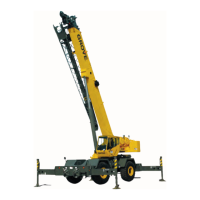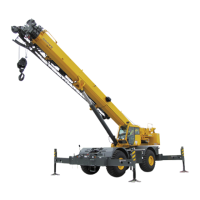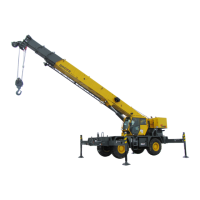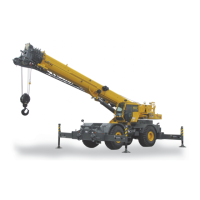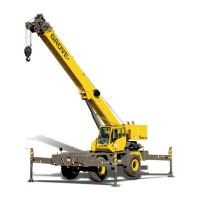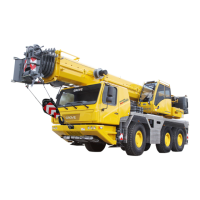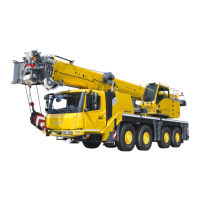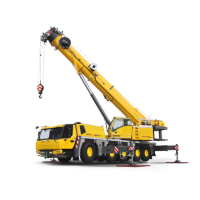SET-UP AND INSTALLATION RT9150E OPERATOR MANUAL
4-4
Published 2-23-2017, Control # 644-00
8. Push the cable back until cable wedge (4) (Figure 4-6) is
fully in the pouch (2) (Figure 4-6).
9. Ensure that the cable wedge (4) (Figure 4-6) loop and
cable end do not protrude beyond the flanged wheel.
This will prevent damage.
10. Start the engine.
11. Hold the cable taut and wind up the cable slowly.
12. Reeve the hookblock at least 4 times.
13. Raise the main boom to a steep position and extend it
fully.
14. Unwind the cable out until only five turns remain on the
cable drum.
NOTE: Watch the hookblock when unwinding. The
hookblock must not rotate.
15. Run in the new cable with small loads so that the hoist
cable can settle on the drum.
CABLE REEVING
NOTE: There are two types of cable (wire rope) available
on this crane; 6 x 36 WS and 35 x 7 (non-rotating).
Within the limits of the load and range charts and permissible
line pull, multi-part lines allow the operator to raise a greater
load than can be raised with a single part line. Various cable
reeving (part line) is possible with the boom nose and hook
block (Figure 4-12). This reeving should be accomplished by
a qualified rigger using standard rigging procedures.
NOTE: Use the cable grab (Figure 4-7) when using the
main hoist with lattice extensions.
In order to quick reeve the hook block without removing the
wedge socket on the end of the cable refer to (Figure 4-8).
DANGER
Crushing Hazard!
After installing new cable, the lowering limit switch must
always be reset. This will avoid the lowering limit switch
from switching off too late or not at all, the cable being
damaged and the load falling.
Death or serious injury may result from an improperly set
limit switch.
CAUTION
Do not reeve Auxiliary Hoist cable through the cable grab.
Reeve the Main Hoist cable through the cable grab. If
both Main & Auxiliary Hoists are being reeved, neither one
may be reeved through the cable grab. Keep it in the
down position (Figure 4-7).
FIGURE 4-7
7510-1
Cable Grab
Reference Only
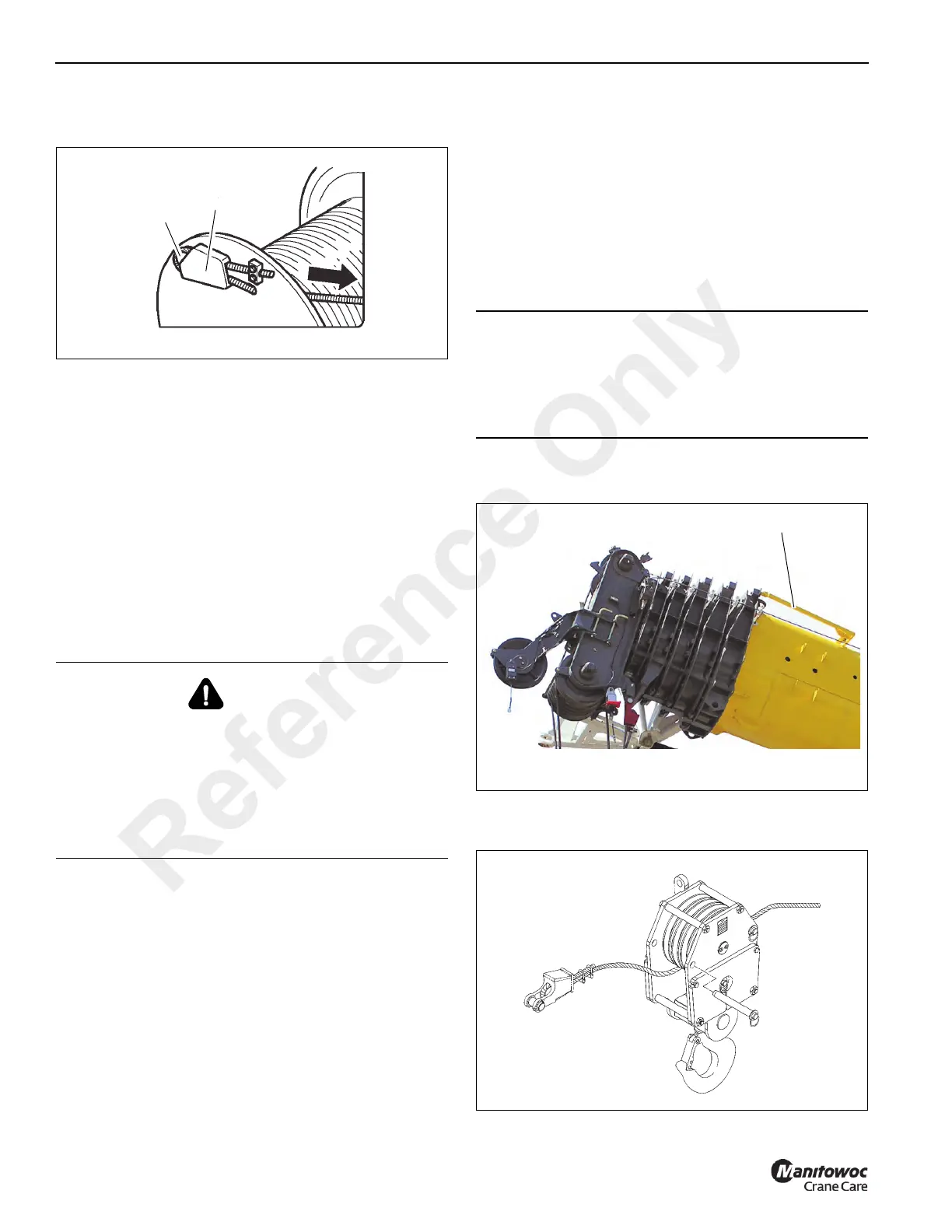